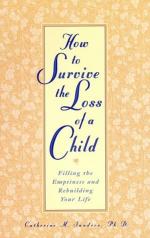|
This section contains 3,372 words (approx. 12 pages at 300 words per page) |

|
Death is defined as the irreversible loss of biological life functions, and occurs in all organisms. It is the inevitable conclusion of a finite existence, and is often applied by analogy even to geological features that contain life (the death of a river), social orders (death of a city), or machines (one's car or computer died). Science can study the phenomenon of death, technology may delay its approach, but medicine cannot cure humans of their mortality.
Dying, by contrast, is the process that leads to death, and is a distinctly human event, embedded in numerous moral traditions and well-circumscribed by prescriptions for appropriate conduct in its presence. No other animal attends as carefully to the dying process or accords it such significance. Modern medical technologies, including drugs and therapies, aim to delay the onset of this process (life-saving technologies), extend it (life-sustaining or life-support...
|
This section contains 3,372 words (approx. 12 pages at 300 words per page) |

|


